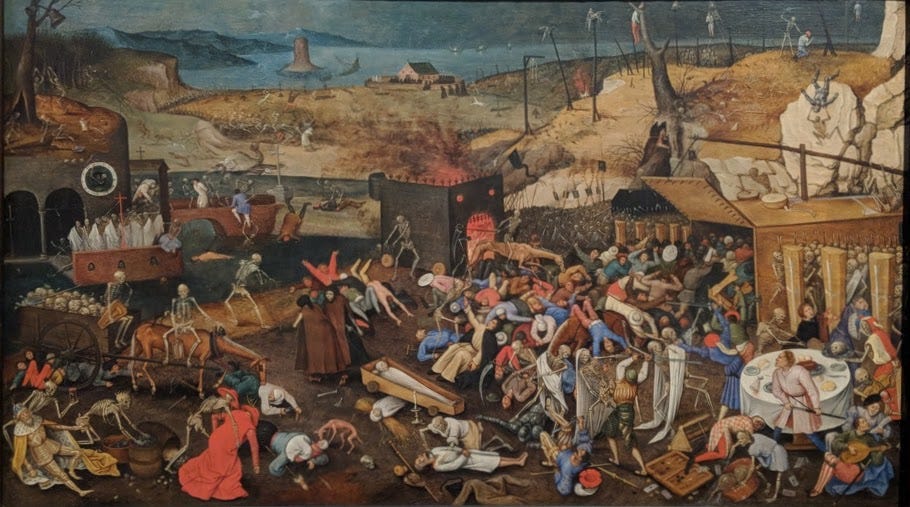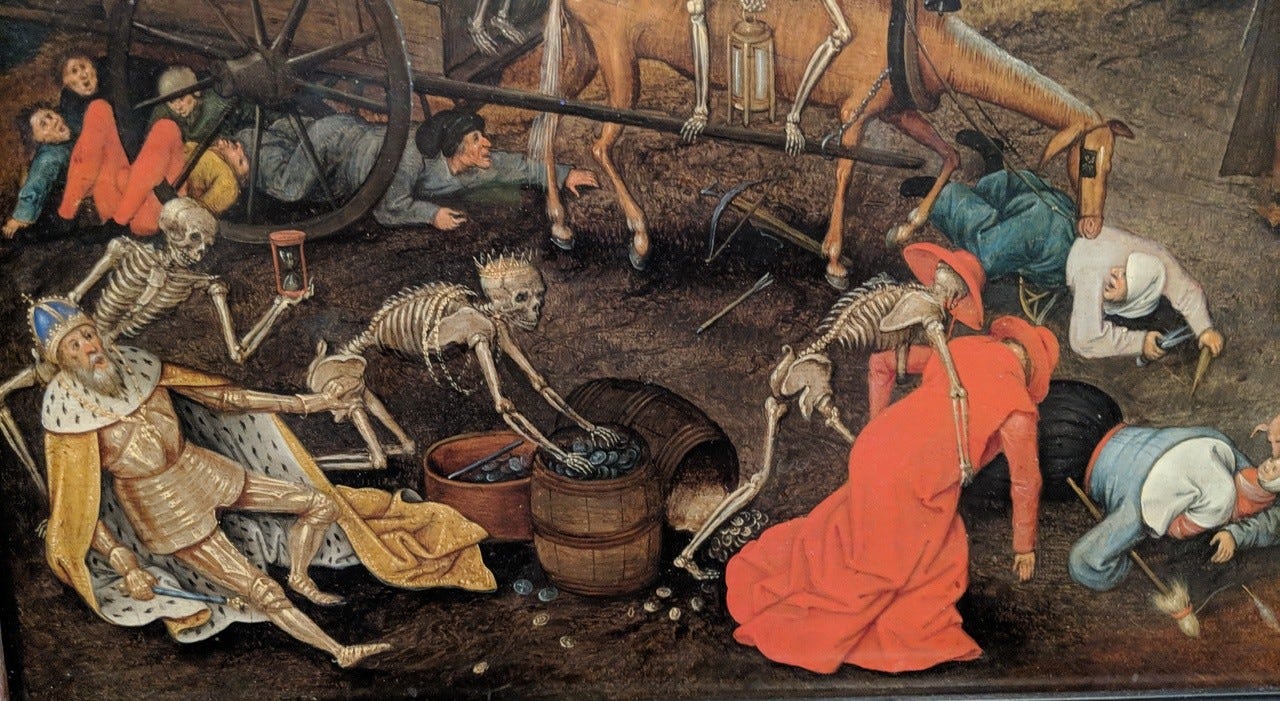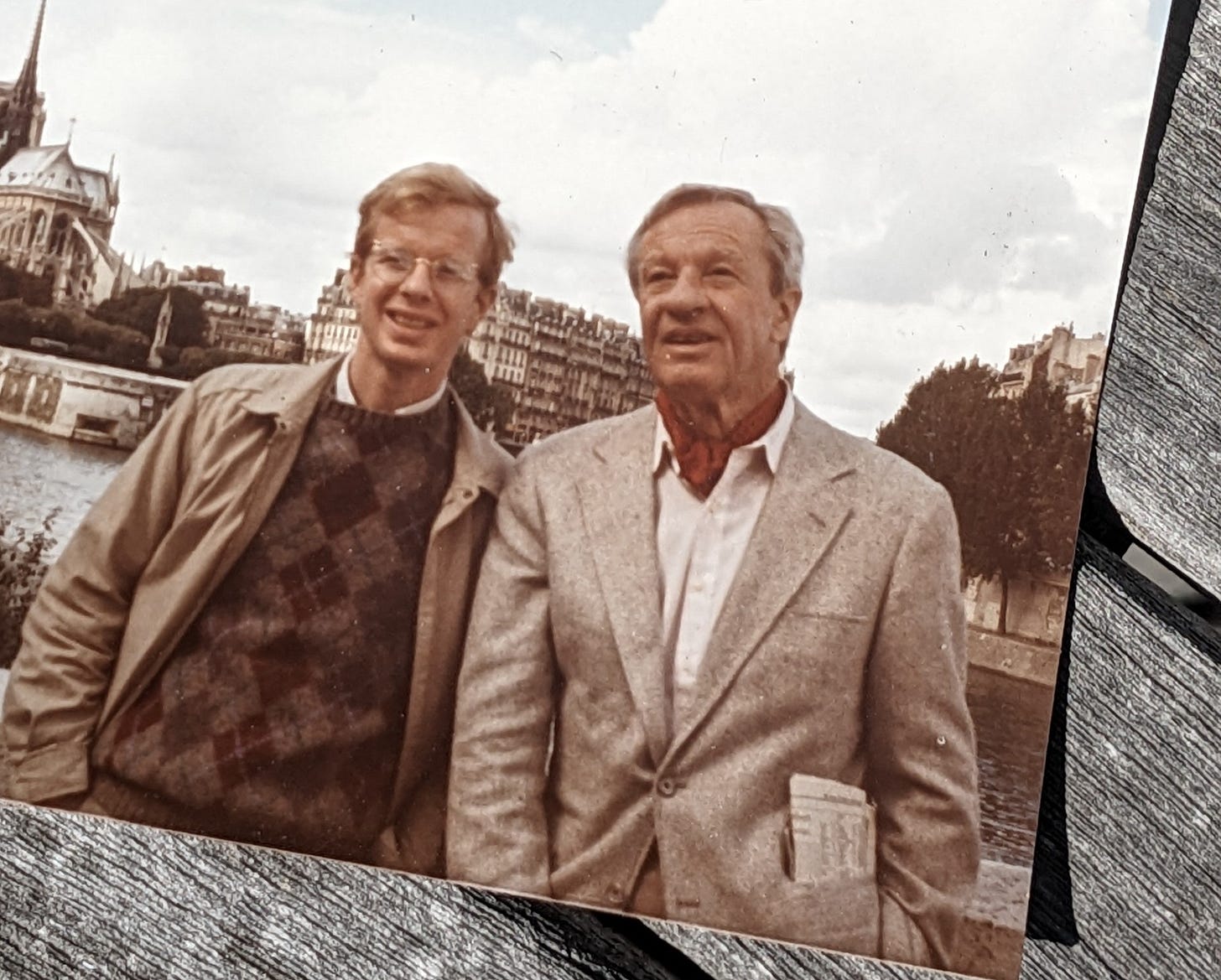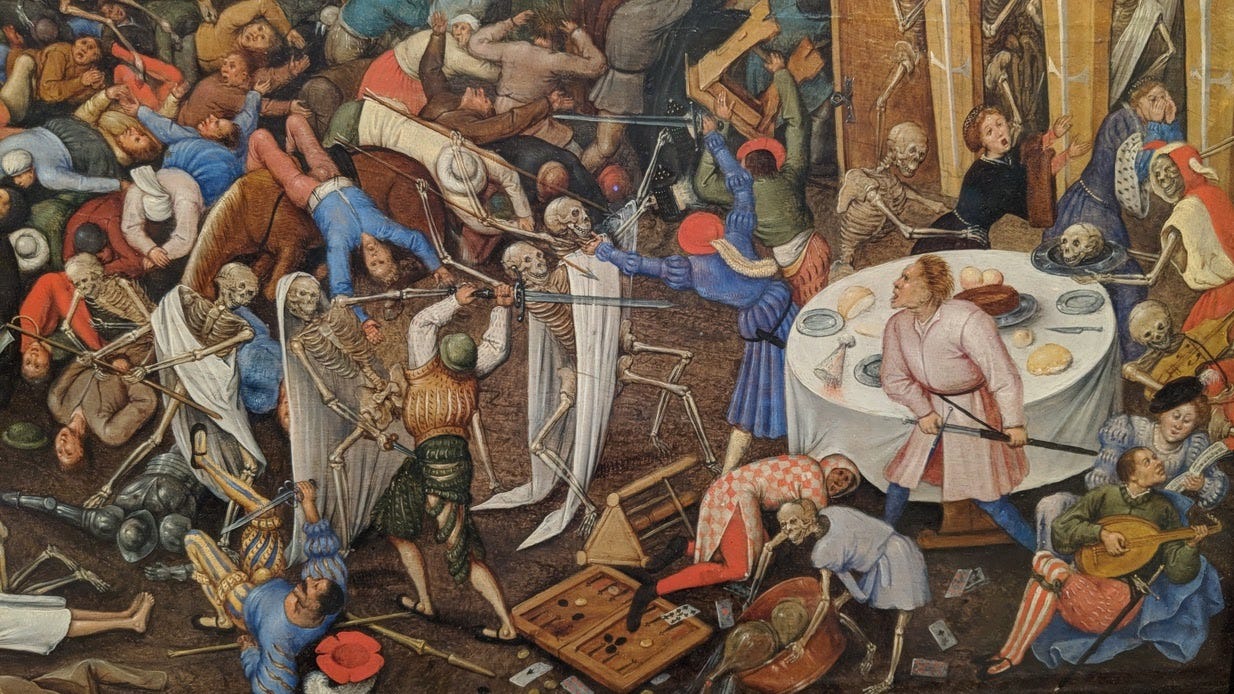World Without End, Ahem.
History's most world-affecting civilization got there by denying ends. Is that over?
My father died in Connecticut while I lived in Tokyo. A couple of weeks later, as my grief descended Time’s standard curve from “crushing” to “episodic,” something happened that appalled me.
I was walking in the usual crowd to my commuter train, set for another day of imitating normality until normality resumed. Suddenly, I realized that the hundreds of people around me were simply walking purposefully to work. Didn’t they know that my father had died, that he was no longer part of the world? The banality of this was shocking. Dad receded ever further into the irretrievable past, as we all must in time, even as my living crowd grew the distance to him with our every step, and no one but me noticed this tragedy.
If you’ve lost someone you’ve probably experienced something similar. Without time and mortality, or rather, without our beloved selves and our consciousness of time and mortality, life would lack meaning. Sometimes, though, the price we pay is clear and staggering. It is the freight we pay.
I bring all of this up because someone reminded me of the Avatars of the Dead, AKA Ghostbots, and similar products of what’s known as Grieftech. These are digital means of coping with the loss of a loved one by reconstructing them using Artificial Intelligence trained on videos of them, audio clips, images, writings, and any other remnants. This is the raw material of an interactive bot with which the mourner may interact.
It may indeed work for some people, and I wish them well. At the same time, it strikes me as an extraordinary expression of the two things that set our civilization apart from all others.
First, more than any other civilization we’ve changed the world to suit our ends. Jet travel, antibiotics, clean municipal water, cheese in aerosol cans, and almost everything you can see and touch around you. This has created world-scale problems, from global financial shocks, to mass entertainment and its discontents, to global warming. At the same time, few people in other times and places would not kill to be here, now.
The related, less-noted thing is how we accomplished this change. Like no predecessor, we have collectively set aside teleology, the philosophical/religious idea of final purposes, or more broadly, the establishment of a framework for why we do what we do.
The word teleology comes from the Greek word telos, or end, and its application makes implicit the idea of a final purpose, a reason why people live and die, the reasons to strive for some kind of salvation.

Which is to say, we are a culture of middles over ends, focused on certain processes more than assumed final results. It has made all of the difference.
Consider two of the key ways we became so successful at changing our world, Science and the Free Market. The Market has no final prices. It has only the current price and its history, reflecting ever-changing supply and demand. Similarly, in Science there is no final outcome,1 there is only hypothesis, proof and a likely explanation, and building on that to the next thing.
Consumerism, particularly the type driven by tech, fits this observation. It’s long been a dominant factor in moving society forward, winning an even bigger share of our mental model of the world after the fall of Communism in 1989. We make, we learn, we consume, all in an unending, and most of the time largely satisfying, process, thanks to setting aside teleology and focusing on process.
To be clear, we have not set aside teleology from all of life; religions of all sorts still have plenty of wealth and attention, though perhaps less than the presence of religion in the media and politics might suggest (in China it matters to just 3% of the population, and even in the U.S. it’s losing ground.)

By codifying the separation of Church and State2 and adjusting religions so they accommodate most scientific discoveries and technology innovations we have sustained a culture of process. Time dictates stop points, certainly for individuals, and most likely for nations and even the civilization itself, but it isn’t something we deal with. Focusing on the success of middles has taken us to the Moon and beyond.
This is where Grieftech becomes interesting. It holds the promise of bringing even the dead into our society of middles. The ghostbot creates a sense of the missing person, so convincingly that a grieving person might feel like their loved one is not entirely gone. Even though the dead person belongs, as people used to say, “to the Ages,” while they themselves move forward in time.

Except, of course, the dead do not accompany them, even with the miracles of technology. The training set, no matter how rich, consists entirely of past elements. It is also highly fragmentary, made from remnants of what emerged publicly. Of course, whatever we express to the world is, at most, a small part of our inner lives, our souls if you like.
This is a poignant comment on all AI, by the way. Authentic intelligence, like life, exists in the presence and moves forward. Things made from a corpus are by definition made from the past. While advanced AI, and AGI, may imitate consciousness (an urge, as I wrote going back to the strange foundational paper of Alan Turing), as long as they are constructed from stored data, they are things that retrieve the past.
I’m for Grieftech, if it helps grieving people. Who am I to take away someone else’s emotional palliative? At the same time, I have misgivings. The ghostbot is, after all, product intended to create and sustain an illusion.
In so doing, it also sustains the greatest weakness of a civilization of middles: Without a telos there is only process, which makes meaning hard. Even Atheism and Agnosticism, if engaged with fully, help us focus on the necessity of meaning, and from that the difficult work of learning how to trust love.
There are many dreams of finding a Unified Field Theory for Physics, unifying all physical properties, after which time supposedly issues like Why There Is Life And Here’s How It Works become so many footnotes to the big triumphant thing. As there is no evidence of either the discovery or that consequence, we can set this aside.






C_rodnsa@yahoo.com
Someone should start on the grief bot for our dear leader. Lots of video to mine. He will die - eventually - and you could charge by the hour.